Slip Joint
Slip Joint
Commissioning & decommissioning of wind turbines can be a very time consuming and costly business, especially offshore, when using increasingly large vessels over longer distances to transport and install components. The DOT slip joint can greatly reduce installation time when compared to more traditional bolted or grouted methods and allows for single lift turbine installation. Wind turbines can be installed in a matter of minutes with minimal preparation like putting the cap on a ballpen. This process can also be reversed making replacing or removing turbines far less complex. The slip joint concept can be used for both tower to monopile and nacelle to tower connections. Furthermore, the slip joint can also be used for sea fastening making it a highly efficient innovation for both transport and installation.

Process Timeline
-
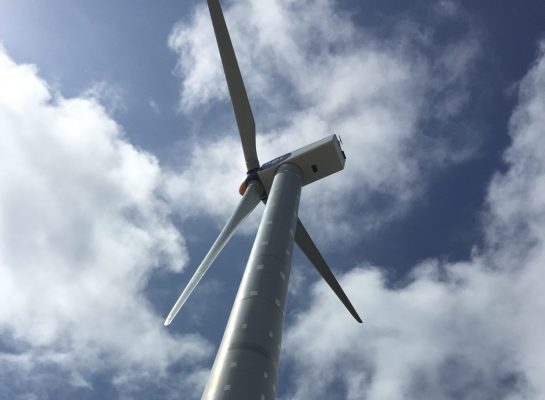
Onshore full scale testing
A fully operational 500kW hydraulic wind turbine including wind turbine control via spear valve and a slip joint was tested onshore at the Maasvlakte in the Port of Rotterdam.
-
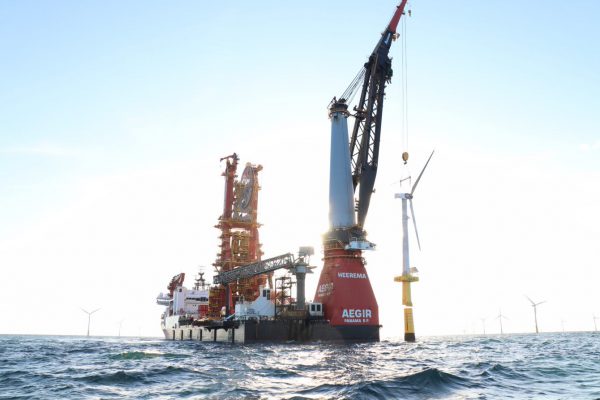
Offshore full scale testing
Commissioning, operation, certification and decommissioning of the DOT turbine including a full scale slip joint and monopile installation.
- Proof of slip joint concept
- Level D, B & C type certification (DNV-GL)
- Single lift installation of a WTG in combination with a floating installation vessel
-
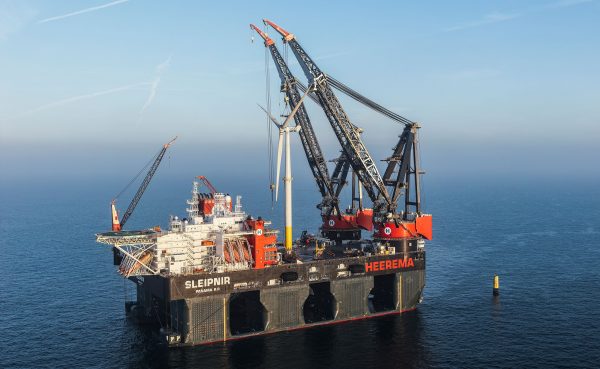
Floating installation of an XXL offshore wind turbine
Demonstrating floating installation of our large offshore wind turbine combining Heerema’s Rotor-Nacelle assembly with the slip joint technology. Successful demonstration of:
- Rotor Nacelle assembly
- Slip joint based seafastening
- Nacelle – Tower slip joint
Other innovations
All our innovations are supported by an extensive track record of studies, prototypes and offshore testing. Our approach is to “put steel in the water”: relentlessly testing the concepts in its designated environment of operation.

Hydraulic Drivetrain
The core of the DOT concept is a sea water pump directly driven by the turbine rotor. It is capable of slow rotation speed, high pressure and high-power output.
Read more >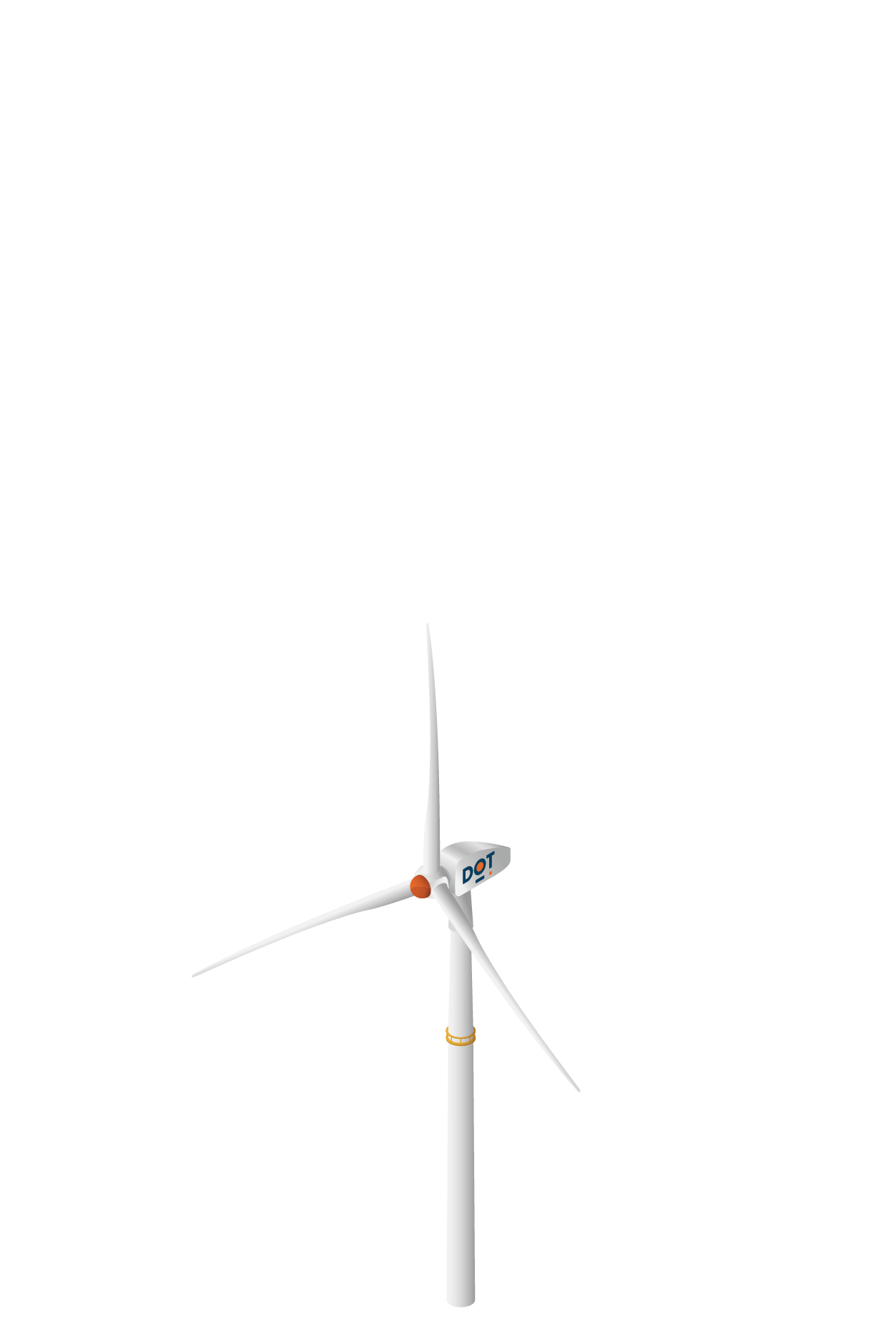
Wind Turbine
Operating a water-pumping wind turbine allows for different control strategies. DOT develops these during the integration of the pump in different turbine platforms.
Read more >
Pelton Turbine
Power conversion from high-pressure seawater is done using hydropower technology a pelton wheel driving a generator. DOT creates an unprecedented 4km hydraulic head.
Read more >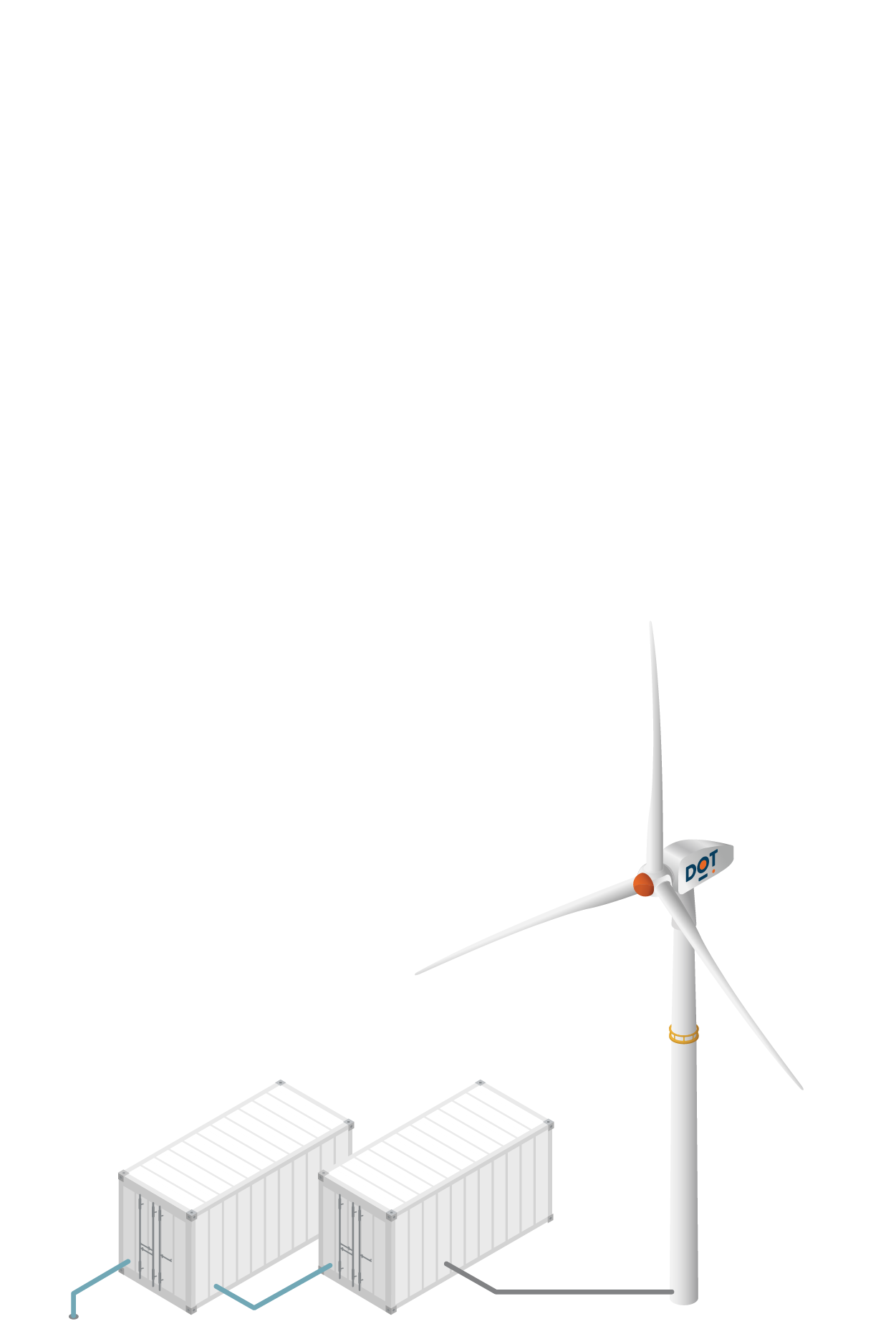
Reverse Osmosis
High pressure seawater can also be used through a reverse osmosis system. The DOT turbine takes out several energy conversion steps to arrive at renewably cleaned water for drinking, irrigation or H2 production.
Read more >
Slip Joint
Speedy installation of the thousands of megawatts offshore wind is crucial to meet the Paris goals. The slip joint removes many cumbersome offshore handling operations, allowing single lift turbine installation.
Read more >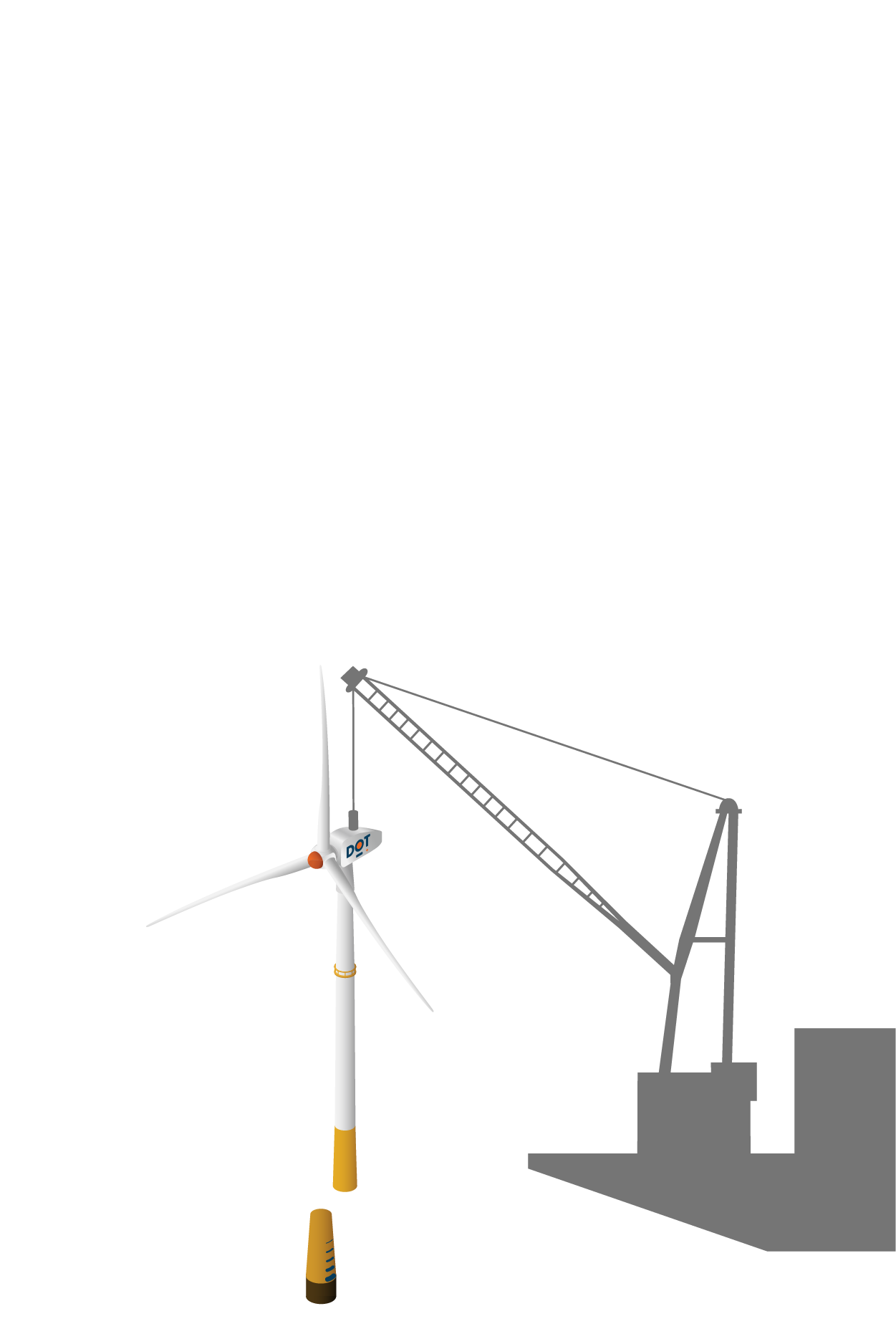
Installation
Beyond the slip joint, DOT supports innovations on pile driving technology, monopile design and cable and pipeline installation. The “steel in the water” drive makes DOT a valuable partner in Joint Industry Projects.
Read more >